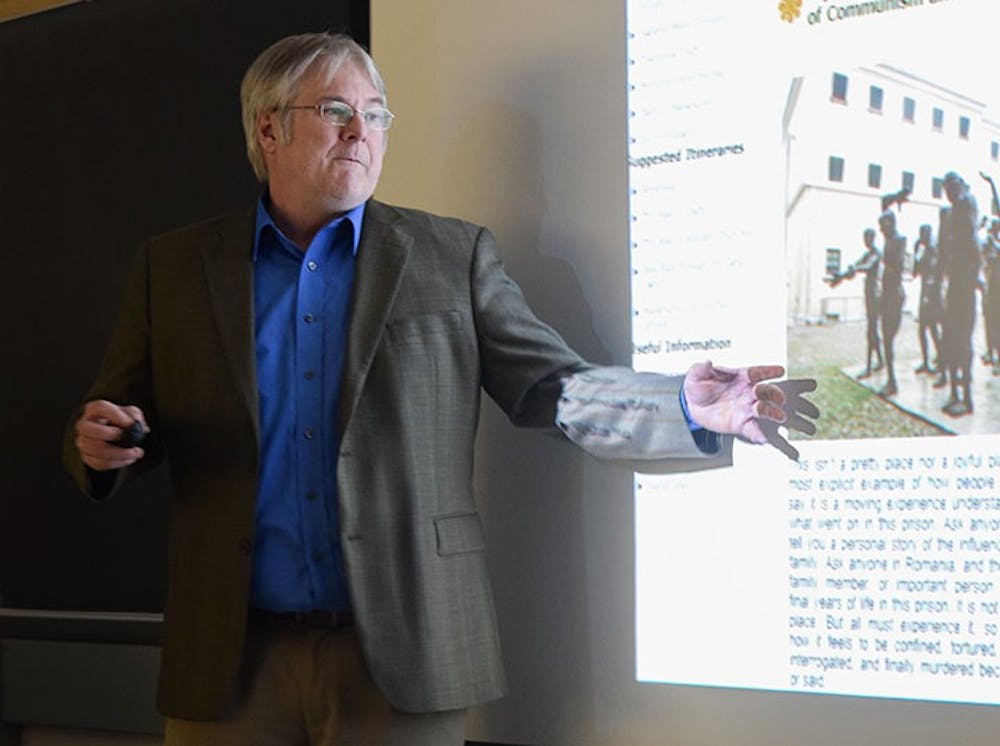Communist churches, statues and museums are some of the evidence of the communist era in Romania and Bulgaria, according to an instructor of history who spoke at Shippensburg University in the Dauphin Humanities Center on Wednesday night.
Traveling through the Iron Curtain, Tim French, adjunct instructor of history at Lord Fairfax Community College, was on a mission to understand the role of communism in Romania and Bulgaria and the evidence that has been left from this era. Communism, French found, was still lurking throughout both of these countries.
Romania, with a long and harsh history with the Soviet Union and communism, has had very little evidence of communism throughout the country. The only lasting evidence of communism is the statue of communism, according to French.
“The people seem more real, more authentic,” he said.
Nicolae Ceausescu, also known as the “King of Communism,” was the ruler of Romania from 1965 until his execution on Christmas Day, 1989. His execution was put on every television and played on a loop on that day, French said.
Bulgaria, appreciating communism, has kept the stores, tire plants, chemical plants, monasteries and many other pieces of that era.
“Bulgarians are happy about the communist era, for the most part,” French said.
The communism churches through Bulgaria have a hint of religion, French said, that would have “the bodies of religious figures and the heads of communist leaders.” These churches are few and far between, but are still major reminders of that time period for the citizens.
French met two women in Bulgaria who held communism tours, also sharing their experiences with communism first hand.
“Their parents had to wait 10 years for a car. You would put 10 percent down first, then you are expected to [pay] the rest when you eventually get your car, ” he said.
French also toured throughout the Czech Republic, another country that showed significant signs of communism, such as different statues and Wenceslas Square
In Prague, the effects of the communism era are still hovering.
Throughout his talk, French also advocated for studying abroad.
“If you can study abroad, do it.”



The Slate welcomes thoughtful discussion on all of our stories, but please keep comments civil and on-topic. Read our full guidelines here.